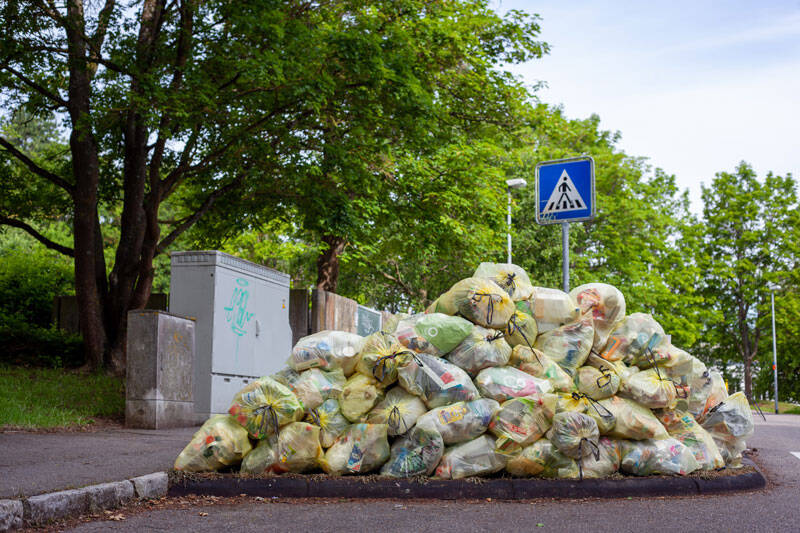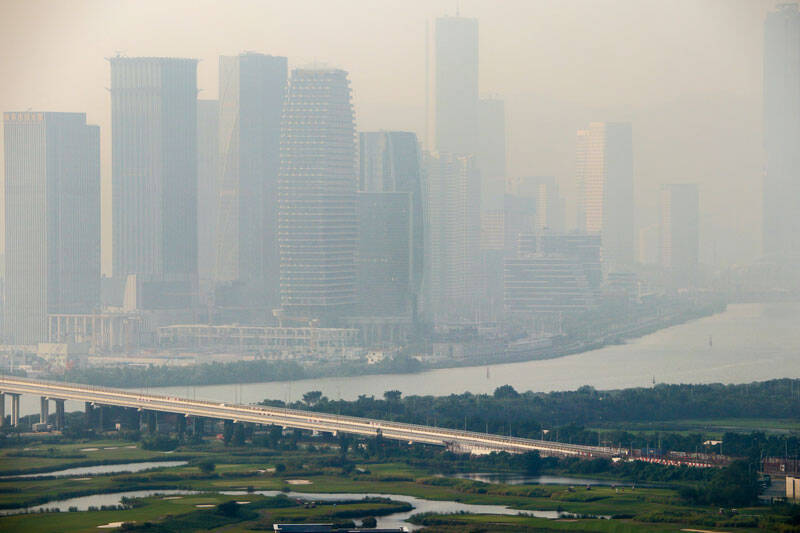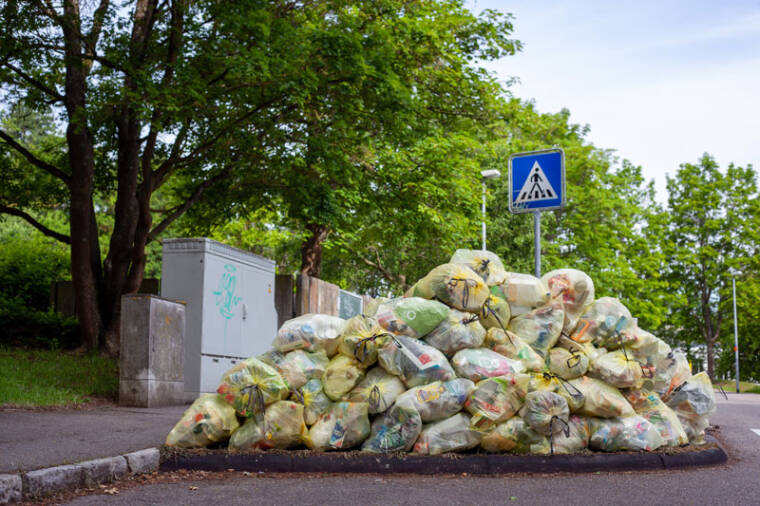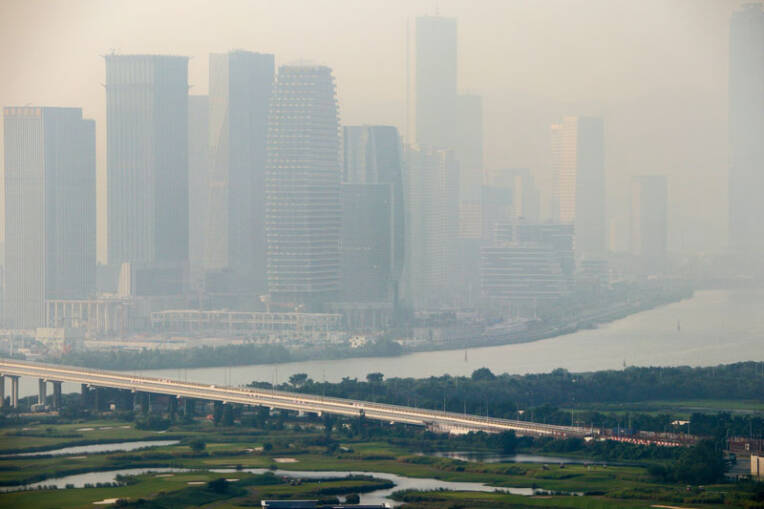
The COVID-19 pandemic won’t fix the planet, but will we in the aftermath?

Some fear global decision makers focus too much on combating the consequences of the pandemic, losing sight or even sacrificing sustainability goals. Right now they are taking measures to lower the amount of infections. A consequence of COVID-19, is the postponement of the 2020 United Nations Climate Change Conference. These measures have a harsh effect on the economy, as many business owners will know. Many governments will choose to invest to restart their economies, which is encouraged by the World Economic Forum (WEF). It is possible that governments will prioritize restarting the pre-covid economies over everything else, including sustainable development. This does not only include funding, but also policy choices. In China for example, provincial officials gave licences for the building of new coal-fired power plants. On the other hand, governments can also choose to direct their investments to new, more sustainable industries. They could use the pandemic as a tipping point, to kill two birds with one stone. An example is the European Green Deal, which is a package of the European Union measures aiming to create a more sustainable economy that is carbon-neutral by 2050.
The ways in which governments will direct their investments and policies will probably not be an either - or situation. In the aftermath of this pandemic, it will be important for both individuals and companies that commit to a sustainable future, to make themselves heard. They have to draw the attention of government officials who make choices that will affect the future. At the same time it's important to pressure the industry, by choosing where to spend their money.
A recent UN rapport concludes that in the long run, these changes will have negligible effect on the environment. At the core of most discussions about climate change is the emission of greenhouse gasses. During the coronavirus crisis this emission has decreased. Scientists warn, however, that this will have little impact on the total concentration of greenhouse gases in the atmosphere in the long run. The last five years have been predicted to be the warmest years on record. Sea levels in the last 5 years have risen 0.7 mm. faster per year than in the period 2011-2015. For a significant improvement, the world's economy must change fundamentally. The adoption of remote work policies and video calls may form a promising first step. Some scientists and critics argue that this does not only require circular production chains and carbon-neutral technologies, but also an economy that does no longer focus on growth and expansion.
Sources
United Nations, United in Science 2020.
Beth Gardiner, ‘Why COVID-19 will end up harming the environment’, in: National Geographic.
Manuel A. Zambrano-Monserrate, María Alejandra Ruano, Luis Sanchez-Alcalde, ’Indirect effects of COVID-19 on the environment’, in: Science of the Total Environment 728 (august 2020).
Mohammad Hassan Shakil, Ziaul Haque Munim, Mashiyat Tasnia, Shahin Sarowar,
COVID-19 and the environment: A critical review and research agenda, in: Science of The Total Environment 745 (november 2020).
Wiedmann, T., Lenzen, M., Keyßer, L.T. et al., ‘ Scientists’ warning on affluence; Nature Communications 11, ( june 2020).
Negative developments:
Critics fear that populations with eased regulations tend to take the car instead of public transportation. This causes extra greenhouse gas emissions.
NGO’s warn for illegal forestry in the Amazon and poaching on the African savannahs spikes, caused by people that are looking for alternative sources of income during difficult economic times , while government officials are distracted.
An increase of (plastic) waste occured. Some cities in the USA decided to stop recycling plastics because of fear of spreading the virus. Delivery of food and commodities have increased, which has led to an increase in use of plastic packaging, which is often single use. Also, for obvious reasons the amount of medical waste skyrocketed.
Most food supply chains were highly specialized and had trouble adapting to the new economic reality, in which out-of-home consumption shifted to consumption at home. As a result, a lot of food was wasted. Although people eat roughly the same amount of food in restaurants as they do at home, they eat different products, which are also packaged differently. In April, US dairy farmers had to dump 3.7 million gallons of milk each day. This had a huge financial and environmental impact.
In the past months, scientists have proven that a lockdown has both positive and negative effects on the environment.
Positive developments:
Air pollution decreased significantly. NO2, a gas mainly resulting from traffic, is a good indicator of air quality. Emission levels dropped by 40 to 50% in major Indian cities.
The canals of Venice became transparent again, as a result of decreased water pollution.
Scientists predict that the emission of greenhouse gasses in 2020 overall will be 4-7% lower than 2019. This is the result of less economic activity overall, for example there has been less air traffic, industry and transport by car. In October, people travelled 62% less, with U.S. Airlines compared to the same period last year. Depending on kind of the COVID-measures, driving in the USA decreased by 10-40% in different regions
The lack of commercial activity and transportation has also led to less noise pollution.
Beaches in Mexico, among others, have become considerably cleaner, because tourists stayed at home.
Jurgen Elenbaas Sander van der Meij
When various parts of the world went into lockdown, social media was filled with unpolluted vistas on mountain ranges and videos of wild animals roaming otherwise crowded streets. The human burden on the environment seemed less for a short while and nature seemed to rebound. A couple of months after the outbreak of the global pandemic, we should be able to discern how much of the image of nature rebounding was real and how much was wishful thinking. This also makes it possible to look to the (near) future to predict the impact of COVID-19 on our planet.
trendwatch
5 min
COVID-19 AND PLANET EARTH





Sources
United Nations, United in Science 2020.
Beth Gardiner, ‘Why COVID-19 will end up harming the environment’, in: National Geographic.
Manuel A. Zambrano-Monserrate, María Alejandra Ruano, Luis Sanchez-Alcalde, ’Indirect effects of COVID-19 on the environment’, in: Science of the Total Environment 728 (august 2020).
Mohammad Hassan Shakil, Ziaul Haque Munim, Mashiyat Tasnia, Shahin Sarowar,
COVID-19 and the environment: A critical review and research agenda, in: Science of The Total Environment 745 (november 2020).
Wiedmann, T., Lenzen, M., Keyßer, L.T. et al., ‘ Scientists’ warning on affluence; Nature Communications 11, ( june 2020).
Some fear global decision makers focus too much on combating the consequences of the pandemic, losing sight or even sacrificing sustainability goals. Right now they are taking measures to lower the amount of infections. A consequence of COVID-19, is the postponement of the 2020 United Nations Climate Change Conference. These measures have a harsh effect on the economy, as many business owners will know. Many governments will choose to invest to restart their economies, which is encouraged by the World Economic Forum (WEF). It is possible that governments will prioritize restarting the pre-covid economies over everything else, including sustainable development. This does not only include funding, but also policy choices. In China for example, provincial officials gave licences for the building of new coal-fired power plants. On the other hand, governments can also choose to direct their investments to new, more sustainable industries. They could use the pandemic as a tipping point, to kill two birds with one stone. An example is the European Green Deal, which is a package of the European Union measures aiming to create a more sustainable economy that is carbon-neutral by 2050.
The ways in which governments will direct their investments and policies will probably not be an either - or situation. In the aftermath of this pandemic, it will be important for both individuals and companies that commit to a sustainable future, to make themselves heard. They have to draw the attention of government officials who make choices that will affect the future. At the same time it's important to pressure the industry, by choosing where to spend their money.
A recent UN rapport concludes that in the long run, these changes will have negligible effect on the environment. At the core of most discussions about climate change is the emission of greenhouse gasses. During the coronavirus crisis this emission has decreased. Scientists warn, however, that this will have little impact on the total concentration of greenhouse gases in the atmosphere in the long run. The last five years have been predicted to be the warmest years on record. Sea levels in the last 5 years have risen 0.7 mm. faster per year than in the period 2011-2015. For a significant improvement, the world's economy must change fundamentally. The adoption of remote work policies and video calls may form a promising first step. Some scientists and critics argue that this does not only require circular production chains and carbon-neutral technologies, but also an economy that does no longer focus on growth and expansion.


Negative developments:
Critics fear that populations with eased regulations tend to take the car instead of public transportation. This causes extra greenhouse gas emissions.
NGO’s warn for illegal forestry in the Amazon and poaching on the African savannahs spikes, caused by people that are looking for alternative sources of income during difficult economic times , while government officials are distracted.
An increase of (plastic) waste occured. Some cities in the USA decided to stop recycling plastics because of fear of spreading the virus. Delivery of food and commodities have increased, which has led to an increase in use of plastic packaging, which is often single use. Also, for obvious reasons the amount of medical waste skyrocketed.
Most food supply chains were highly specialized and had trouble adapting to the new economic reality, in which out-of-home consumption shifted to consumption at home. As a result, a lot of food was wasted. Although people eat roughly the same amount of food in restaurants as they do at home, they eat different products, which are also packaged differently. In April, US dairy farmers had to dump 3.7 million gallons of milk each day. This had a huge financial and environmental impact.
In the past months, scientists have proven that a lockdown has both positive and negative effects on the environment.
Positive developments:
Air pollution decreased significantly. NO2, a gas mainly resulting from traffic, is a good indicator of air quality. Emission levels dropped by 40 to 50% in major Indian cities.
The canals of Venice became transparent again, as a result of decreased water pollution.
Scientists predict that the emission of greenhouse gasses in 2020 overall will be 4-7% lower than 2019. This is the result of less economic activity overall, for example there has been less air traffic, industry and transport by car. In October, people travelled 62% less, with U.S. Airlines compared to the same period last year. Depending on kind of the COVID-measures, driving in the USA decreased by 10-40% in different regions
The lack of commercial activity and transportation has also led to less noise pollution.
Beaches in Mexico, among others, have become considerably cleaner, because tourists stayed at home.
Jurgen Elenbaas Sander van der Meij
When various parts of the world went into lockdown, social media was filled with unpolluted vistas on mountain ranges and videos of wild animals roaming otherwise crowded streets. The human burden on the environment seemed less for a short while and nature seemed to rebound. A couple of months after the outbreak of the global pandemic, we should be able to discern how much of the image of nature rebounding was real and how much was wishful thinking. This also makes it possible to look to the (near) future to predict the impact of COVID-19 on our planet.
The COVID-19 pandemic won’t fix the planet, but will we in the aftermath?

5 min
















